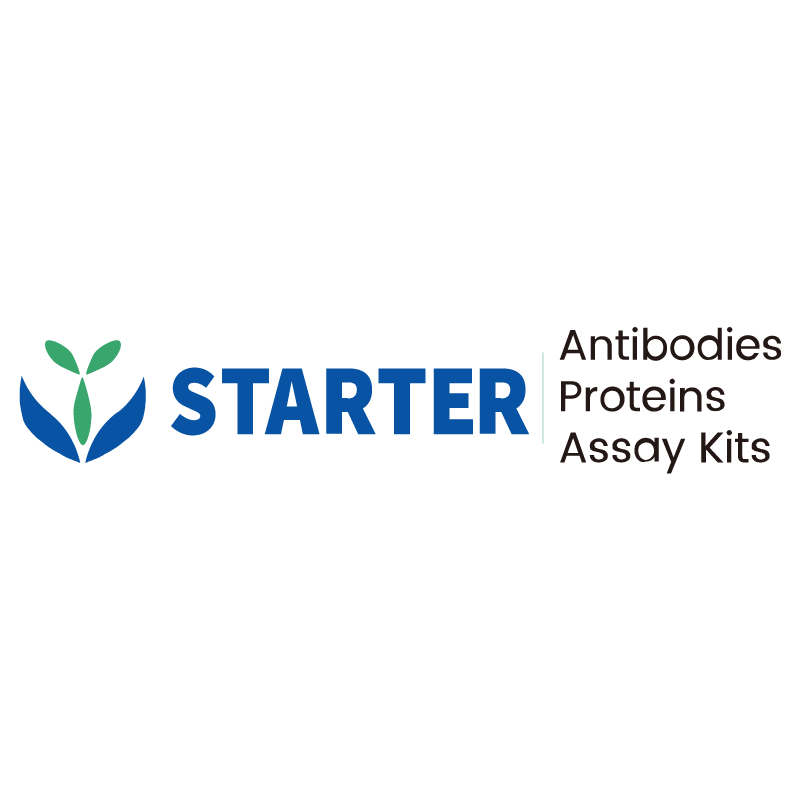WB result of ATP7A Recombinant Rabbit mAb
Primary antibody: ATP7A Recombinant Rabbit mAb at 1/1000 dilution
Lane 1: unboiled HepG2 whole cell lysate 20 µg
Lane 2: unboiled A549 whole cell lysate 20 µg
Lane 3: unboiled HeLa whole cell lysate 20 µg
Lane 4: unboiled SH-SY5Y whole cell lysate 20 µg
Low expression control: unboiled HepG2 whole cell lysate
Secondary antibody: Goat Anti-rabbit IgG, (H+L), HRP conjugated at 1/10000 dilution
Predicted MW: 163 kDa
Observed MW: 130-200 kDa
Product Details
Product Details
Product Specification
| Host | Rabbit |
| Antigen | ATP7A |
| Synonyms | Copper-transporting ATPase 1; Copper pump 1; Menkes disease-associated protein; MC1; MNK |
| Immunogen | Synthetic Peptide |
| Location | Cell membrane |
| Accession | Q04656 |
| Clone Number | S-2289-106 |
| Antibody Type | Recombinant mAb |
| Isotype | IgG |
| Application | WB, IHC-P |
| Reactivity | Hu, Ms, Rt |
| Positive Sample | A549, HeLa, SH-SY5Y, mouse lung, C6 |
| Predicted Reactivity | Hm |
| Purification | Protein A |
| Concentration | 0.5 mg/ml |
| Conjugation | Unconjugated |
| Physical Appearance | Liquid |
| Storage Buffer | PBS, 40% Glycerol, 0.05% BSA, 0.03% Proclin 300 |
| Stability & Storage | 12 months from date of receipt / reconstitution, -20 °C as supplied |
Dilution
| application | dilution | species |
| WB | 1:1000 | Hu, Ms, Rt |
| IHC-P | 1:200 | Hu, Ms, Rt |
Background
ATP7A (Menkes ATPase) is a copper-transporting P-type ATPase that uses ATP hydrolysis to actively pump Cu(I) across membranes, thereby maintaining cellular copper homeostasis: under normal or low copper conditions it resides in the trans-Golgi network (TGN) and delivers copper to cuproenzymes (e.g., peptidyl-α-monooxygenase, tyrosinase, lysyl oxidase), while under high copper it traffics to the plasma membrane to efflux excess copper; the 1,500-amino-acid protein contains eight transmembrane segments forming a copper channel, an ATP-binding domain, and six N-terminal cytosolic Cu(I)-binding GMTCXXC motifs, and mutations in ATP7A cause the X-linked disorder Menkes disease, characterized by systemic copper deficiency, neurodegeneration, and early death.
Picture
Picture
Western Blot
WB result of ATP7A Recombinant Rabbit mAb
Primary antibody: ATP7A Recombinant Rabbit mAb at 1/1000 dilution
Lane 1: unboiled mouse lung lysate 20 µg
Secondary antibody: Goat Anti-rabbit IgG, (H+L), HRP conjugated at 1/10000 dilution
Predicted MW: 163 kDa
Observed MW: 200 kDa
WB result of ATP7A Recombinant Rabbit mAb
Primary antibody: ATP7A Recombinant Rabbit mAb at 1/1000 dilution
Lane 1: unboiled C6 whole cell lysate 20 µg
Secondary antibody: Goat Anti-rabbit IgG, (H+L), HRP conjugated at 1/10000 dilution
Predicted MW: 163 kDa
Observed MW: 200 kDa
Immunohistochemistry
IHC shows positive staining in paraffin-embedded human kidney. Anti-ATP7A antibody was used at 1/200 dilution, followed by a HRP Polymer for Mouse & Rabbit IgG (ready to use). Counterstained with hematoxylin. Heat mediated antigen retrieval with Tris/EDTA buffer pH9.0 was performed before commencing with IHC staining protocol.
IHC shows positive staining in paraffin-embedded human prostate. Anti-ATP7A antibody was used at 1/200 dilution, followed by a HRP Polymer for Mouse & Rabbit IgG (ready to use). Counterstained with hematoxylin. Heat mediated antigen retrieval with Tris/EDTA buffer pH9.0 was performed before commencing with IHC staining protocol.
IHC shows positive staining in paraffin-embedded human gastric cancer. Anti-ATP7A antibody was used at 1/200 dilution, followed by a HRP Polymer for Mouse & Rabbit IgG (ready to use). Counterstained with hematoxylin. Heat mediated antigen retrieval with Tris/EDTA buffer pH9.0 was performed before commencing with IHC staining protocol.
IHC shows positive staining in paraffin-embedded mouse stomach. Anti-ATP7A antibody was used at 1/200 dilution, followed by a HRP Polymer for Mouse & Rabbit IgG (ready to use). Counterstained with hematoxylin. Heat mediated antigen retrieval with Tris/EDTA buffer pH9.0 was performed before commencing with IHC staining protocol.
IHC shows positive staining in paraffin-embedded mouse testis. Anti-ATP7A antibody was used at 1/200 dilution, followed by a HRP Polymer for Mouse & Rabbit IgG (ready to use). Counterstained with hematoxylin. Heat mediated antigen retrieval with Tris/EDTA buffer pH9.0 was performed before commencing with IHC staining protocol.
IHC shows positive staining in paraffin-embedded rat kidney. Anti-ATP7A antibody was used at 1/200 dilution, followed by a HRP Polymer for Mouse & Rabbit IgG (ready to use). Counterstained with hematoxylin. Heat mediated antigen retrieval with Tris/EDTA buffer pH9.0 was performed before commencing with IHC staining protocol.
IHC shows positive staining in paraffin-embedded rat testis. Anti-ATP7A antibody was used at 1/200 dilution, followed by a HRP Polymer for Mouse & Rabbit IgG (ready to use). Counterstained with hematoxylin. Heat mediated antigen retrieval with Tris/EDTA buffer pH9.0 was performed before commencing with IHC staining protocol.


